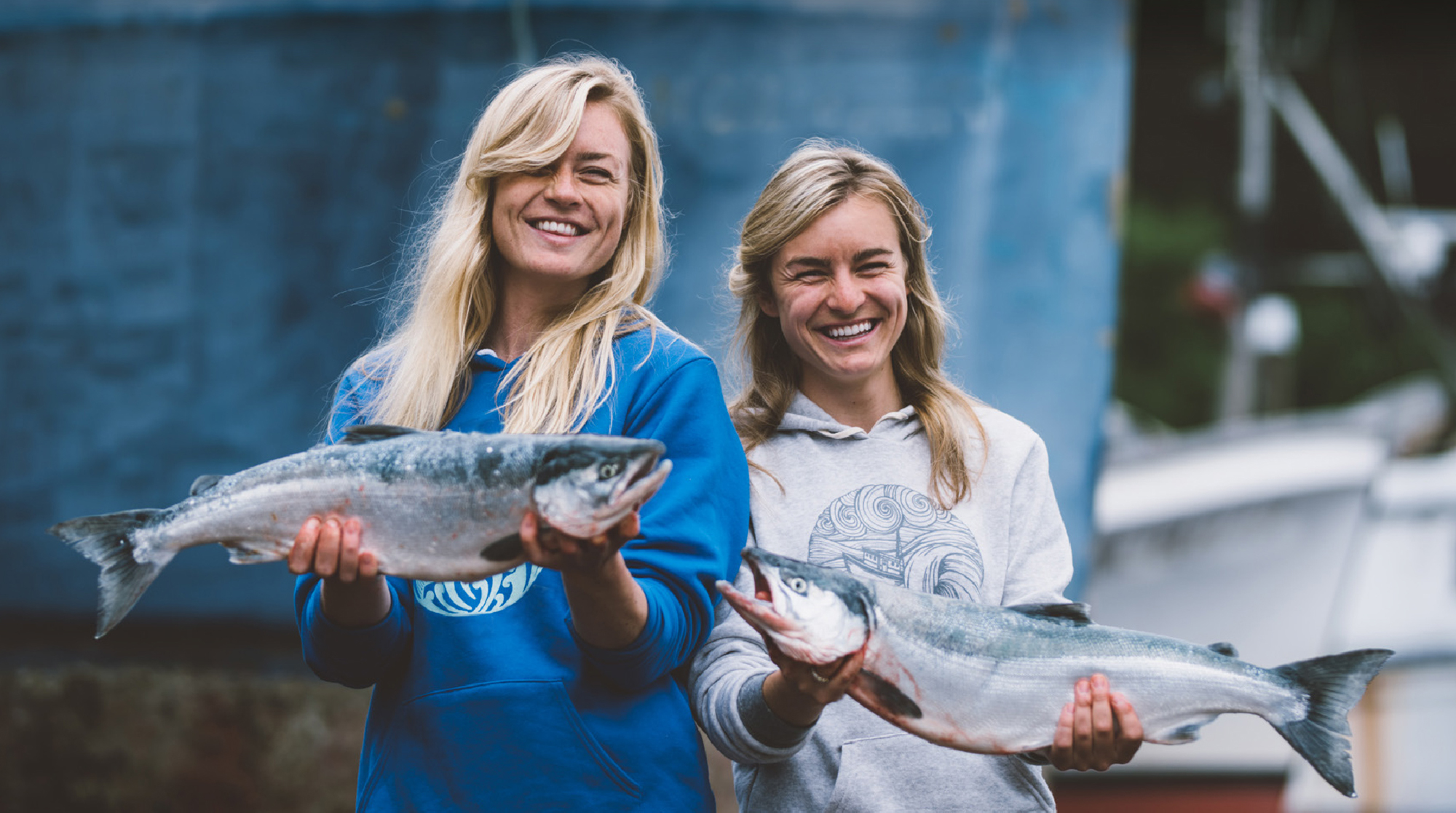

They may call it a cookbook, but “Salmon Sisters—Feasting, Fishing, and Living in Alaska” is really a love letter to the ocean. The sisters, Emma Teal Laukitis, ’18, and Claire Neaton, grew up in western Alaska, spending their winters on the family’s homestead in the Aleutian Islands and living much of the rest of the year on their father’s fishing vessel.
As children, the pair helped in the galley, where they conjured up meals that paired food from their garden with their catch at sea. One summer, when they were home from college and back out on the water, they also conjured up a small business—Salmon Sisters—that celebrated their lifestyle and supported wild, sustainable seafood through the sale of home goods, clothing and smoked and frozen fish. One percent of their net profit is donated in the form of fish to the Food Bank of Alaska.
Now, through their cookbook, Laukitis and Neaton share their seafaring stories and their clean, elegant approach to food. Family recipes blended with those from their community of Alaskans highlight wild-caught seafood, seasonal vegetables and locally foraged foods like huckleberries.
The book is beautiful as well as instructive, with descriptions of different types of salmon that highlight flavor and texture. Silvers, for example, which are delicately textured, work well in salmon cakes while high-oil kings are delicious grilled. Red salmon—or sockeye—with its firm texture, vivid color and rich flavor, make for wonderful poke and lox.
The sisters also write about halibut, Pacific cod and rockfish and include an illustrated eight-step guide to filleting—including how to find and remove those pesky pin bones. With recipes for cioppino, beer-battered halibut and octopus salad, the sisters offer a full sampling of the sea. Of their creamy crab-and-artichoke dip, they say bring it to your next potluck and “prepare to be remembered forever.”
In 2016, Laukitis came to the UW for a master of fine arts in design to further develop her creative work for Salmon Sisters. “Claire and I both have a strong work ethic but have opposite skill sets,” Laukitis says. “My strengths are more creative and visual, and Claire is all business.”
Her graduate thesis focused on environmental advocacy, addressing the threat of the proposed Pebble Mine on Bristol Bay, one of the world’s greatest wild salmon fisheries. Her thesis chair, Karen Cheng, professor of visual communication, has a reputation “for telling it like it is and for taking her students and their work seriously,” says Laukitis. “She was an incredible partner during my final year.” Associate Professor Annabelle Gould taught her about designing publications and sponsored an independent study for Laukitis so she could write the proposal for what would become the Salmon Sisters’ cookbook.